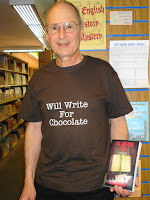CLEA SIMON: Tattoos and the Limits of Research
She rubs her thumb over the F clef on her wrist. A reminder, faded now, of what she had. The cost …
Gal Raver, my protagonist, has a tattoo of an F clef on the inside of her wrist. It’s an old tattoo, faded blue, but whenever she sees it, it reminds her of one of her former bandmates – as it is supposed to. Those memories are a part of who she is – and they’re key to the mysteries at the heart of Hold Me Down. This new, dark book centers on a murder of one of Gal’s old colleagues and the question of why the accused, another old friend, is refusing to defend himself from the charges. To get to the heart of that, and maybe save her old friend, Gal has to delve into her own checkered past, to look back on the life she led as a wild-child rock and roller and the damage she inflicted along the way.
To write this dark psychological suspense, I – like Gal – had to re-immerse myself in the Boston rock scene of decades past. An era when women like my bassist protagonist were making music, and their own way, in a male-dominated world in part by proving themselves as tough as the men around them.
So many of my friends back then were getting tattoos, an act that was still a little transgressive for a woman. J. got a Celtic braid as a bracelet – something she could hide with a watch when she went to visit her mother. K. originally intended to get a small goldfish on her shoulder, but the artist she went to create a gorgeous design that covered her shoulder blade. Before long, skin art became common. But for a few years there, ink defined a certain crew of rockers, so I knew Gal would have some.
She’s certainly not alone. While researching Hold Me Down, I reached out to multiple sources. Musicians for the most part. Critics (like I was) and fanzine writers who had documented the scene and club personnel, from bookers and managers, the folks at the soundboard and behind the bar. And, of course, the fans who had made up the beating heart of the nocturnal world. I remembered a lot, and these conversations sparked more memories, and I also used a lot of what these people shared with me, even as I shaped it to work with my story, and with Gal’s. To make it, like the music, Gal’s own.
I also wanted to get the legalities right – especially once Walter, Gal’s friend, is arrested. For that, I reached out to my old roommate, Susan, now a law school dean. She put me in touch with a professor who specialized in this aspect of criminal law, and who could talk me through the steps from arraignment to trial and who let me try out various possibilities along the way.
Professor Elizabeth Jones of the Western State College of Law even read a full draft of the book, once it was done, for which I am truly grateful. But her one critique, of a passage halfway through, surprised me.“An F clef,” she’d said, drawing one on his pad to make sure he understood. “Here.”
“You sure?” His brows had gone up when she’d turned her arm over, revealing the soft, pale flesh of her wrist. “It’ll hurt.” “Good,” she’d said.
“I have tattoos,” she told me. “And what that tattoo artist says to her? That would never happen.”
“Not even when it’s on the underside of her wrist?” I may not have skin art, but I know how sensitive that area is.
“Doesn’t matter.”
I thought about this for a while. Liz had given me great information, solid feedback on the legal aspects of the book. And then I remembered what she didn’t yet know – that this was Gal’s story, and that what we learn of Gal’s memories may not always reflect what happened. Instead, the stories she shares show us who she was and who she became. Where, in other words, it hurts.
***
A former journalist, Clea Simon is the Boston Globe-bestselling author of three nonfiction books and 29 mysteries. including the new psychological suspense HOLD ME DOWN. While most of these (like A Cat on the Case) are cat “cozies” or amateur sleuth, she also writes darker crime fiction, like the rock and roll mystery World Enough, named a “must read” by the Massachusetts Book Awards. Her new psychological suspense Hold Me Down (Polis Books) returns to the music world, with themes of PTSD and recovery, as well as love in all its forms. She can be reached at www.cleasimon.com, on Twitter @Clea_Simon and on Instagram @cleasimon_author





